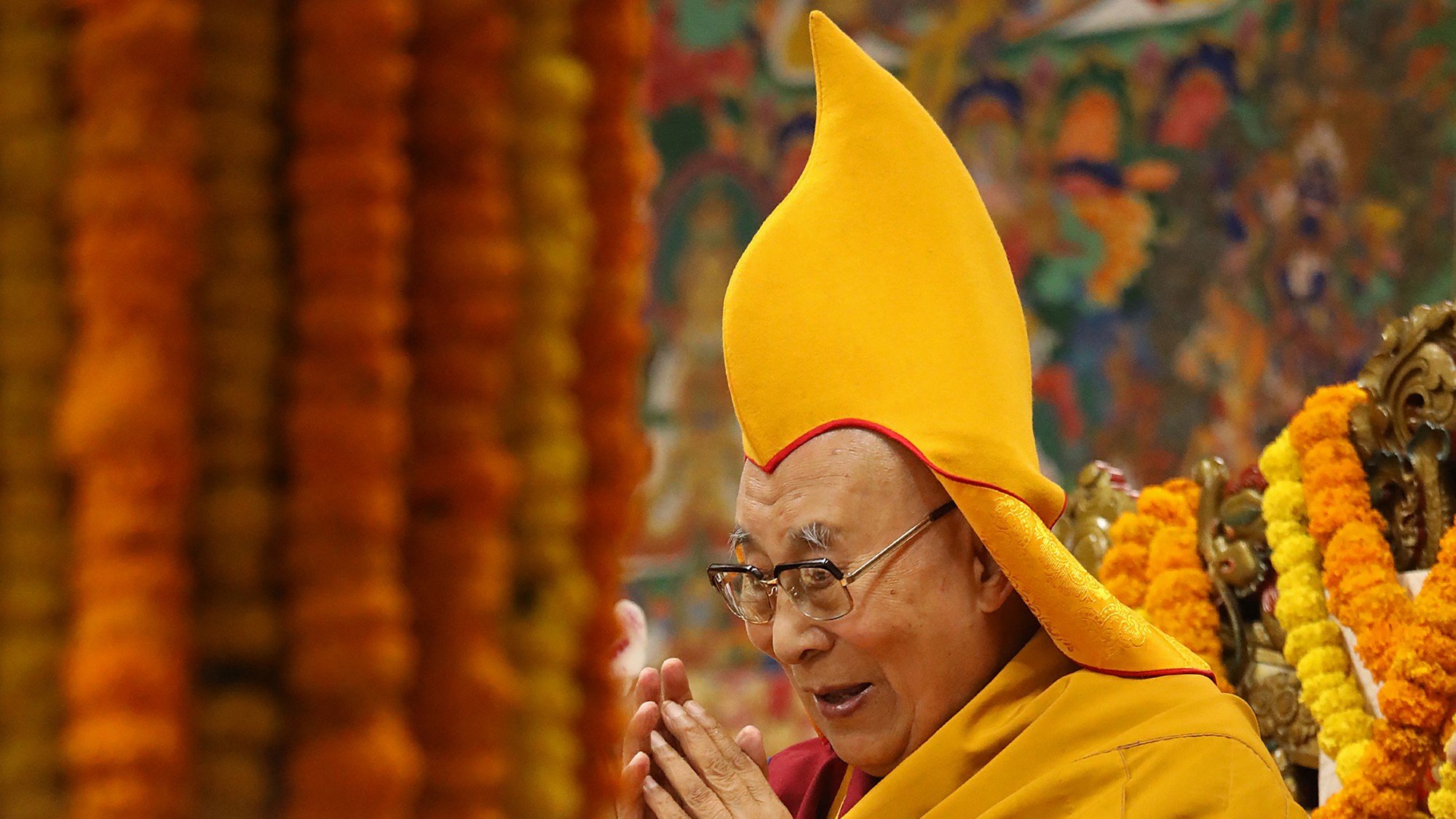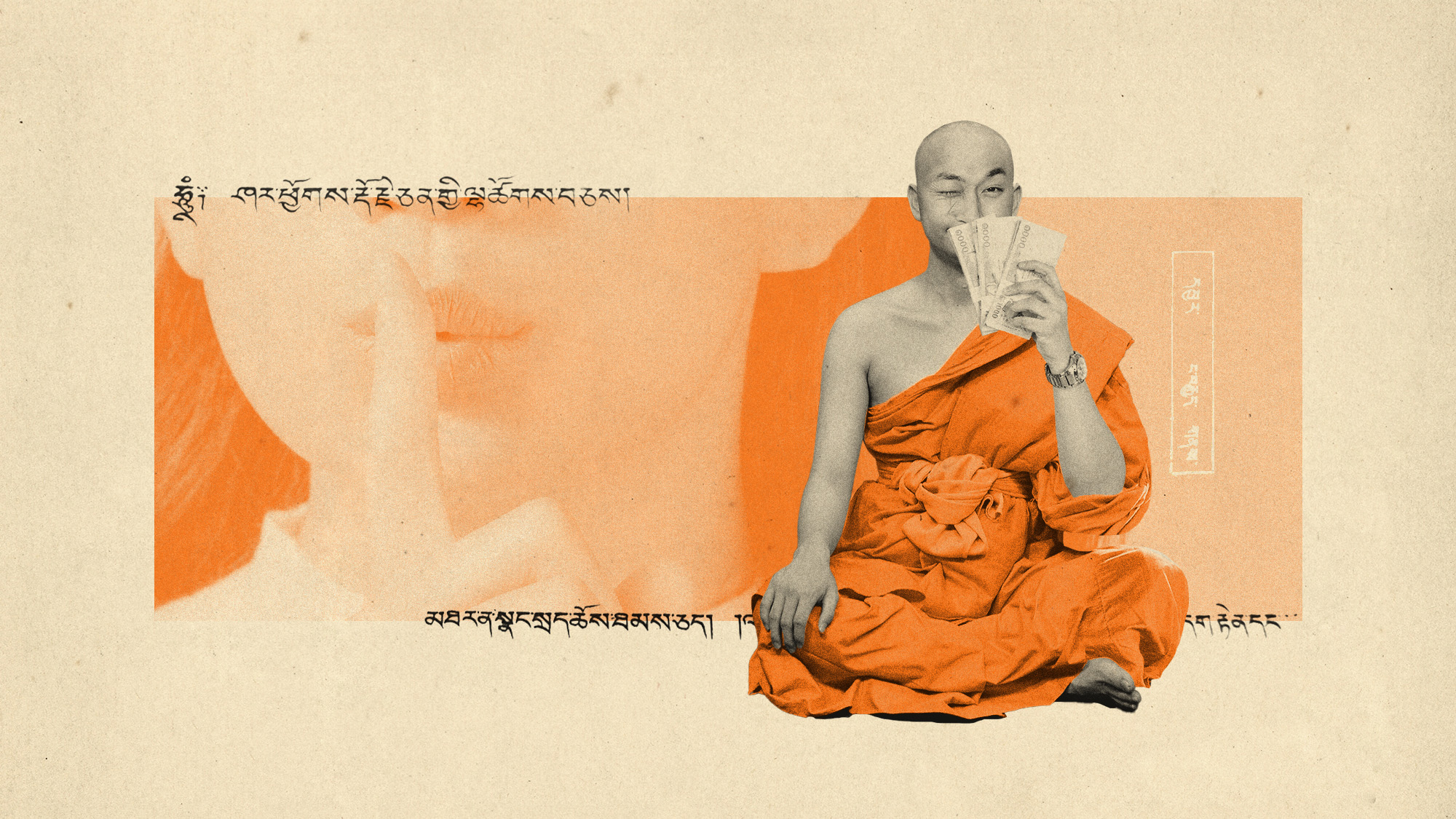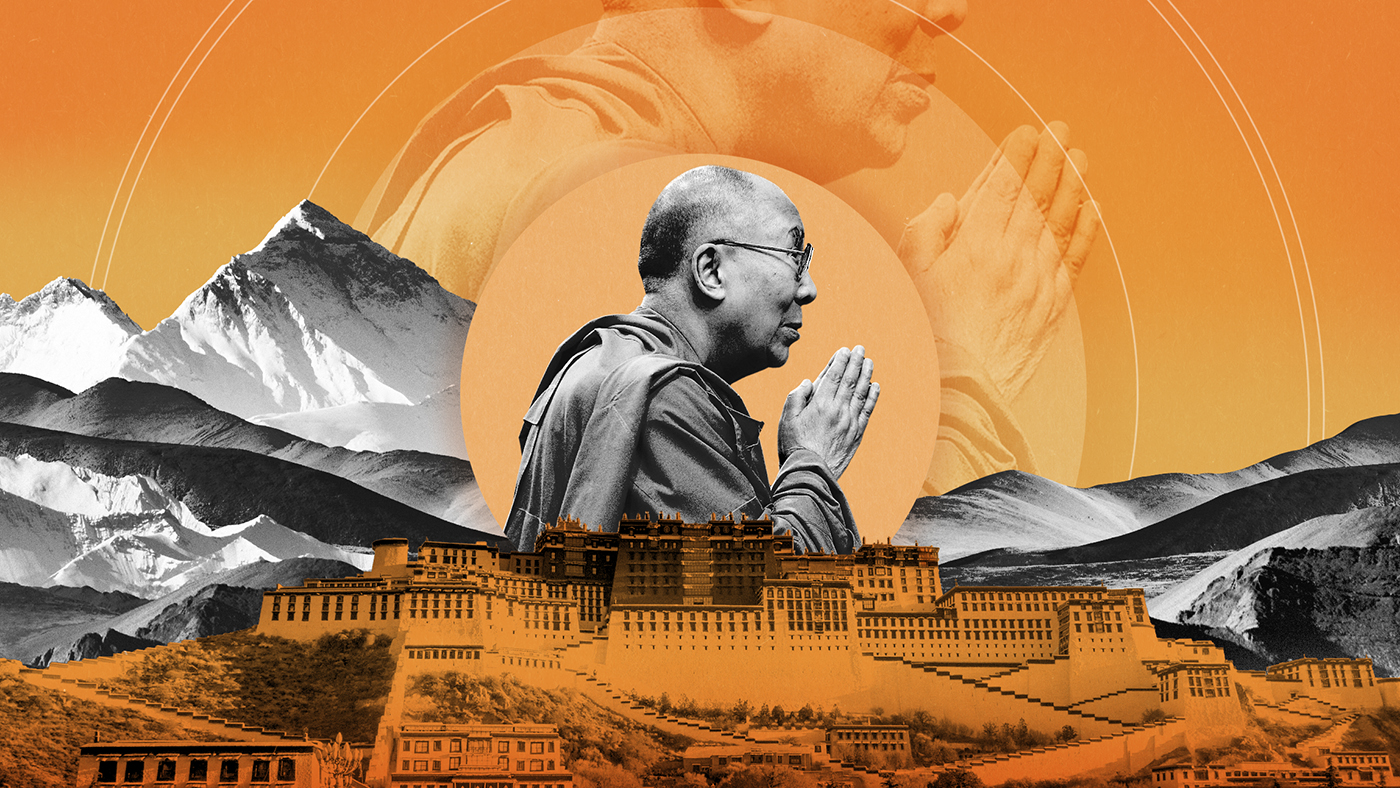How the next Dalai Lama will be chosen
China 'determined to shape the narrative' around choice of Tibet's next spiritual leader

A free daily email with the biggest news stories of the day – and the best features from TheWeek.com
You are now subscribed
Your newsletter sign-up was successful
The Dalai Lama has marked his 90th birthday by revealing the long-awaited plans for his succession. In a video message, the spiritual leader of Tibet's Buddhists said "the institution of the Dalai Lama will continue" after his death, with the spiritual foundation he established in 2015 tasked with identifying his reincarnation. In a nod to brewing political tensions over the role, he added that "no one else has any such authority to interfere in this matter".
The choice of his successor is "a matter of riveting interest not only for followers of his religion, but also China, India, and the United States, for strategic reasons", said Reuters.
How is the Dalai Lama chosen?
Finding a new Dalai Lama means "recognising the leader's reincarnated form", a process "shrouded in mysticism and little understood outside closed religious circles", said The Sunday Times.
The Week
Escape your echo chamber. Get the facts behind the news, plus analysis from multiple perspectives.

Sign up for The Week's Free Newsletters
From our morning news briefing to a weekly Good News Newsletter, get the best of The Week delivered directly to your inbox.
From our morning news briefing to a weekly Good News Newsletter, get the best of The Week delivered directly to your inbox.
By Tibetan tradition, after a Dalai Lama's death senior monks begin the search for the infant they believe to be his reincarnation. This process involves "dream interpretation, inference from omens and ancient rituals, and pilgrimages to sacred sites".
The current Dalai Lama, born Tenzin Gyatso, was discovered in 1937 at the age of two after a senior monk saw his house in a vision. The toddler was apparently able to correctly identify artefacts that had belonged to the previous Dalai Lama.
The problem is this search "can take years", said The Diplomat, "often leaving a spiritual and leadership vacuum" for Tibetan Buddhists.
That is why the 14th Dalai Lama is "rewriting the script". He has indicated he may "emanate" to another person while still alive, and that that person could be adult and not necessarily a man.
A free daily email with the biggest news stories of the day – and the best features from TheWeek.com
He has also said that they are likely to have been born outside of Chinese-controlled Tibet, among the roughly 140,000 Tibetan exiles, half of whom live across the border in India.
"Since the purpose of a reincarnation is to carry on the work of the predecessor, the new Dalai Lama will be born in the free world," he wrote in his recent book, "Voice of the Voiceless".
What role could China play?
All this appears "part of an apparent strategy to throw off the Chinese and avoid a vacuum that Beijing can exploit as it seeks to control Tibetan Buddhism", said The New York Times.
"China is determined to shape the narrative around this succession, to prevent the erosion of its grip on Tibet," said Bloomberg, which it annexed in the 1950s. The Chinese Communist Party "wants to win the hearts and minds of Tibetans as well as their political allegiance – which is why choosing the next Dalai Lama is so important".
The CCP is expected to try to hijack the succession, as it did in 1995 when it put up its own candidate for Panchen Lama, the second highest figure in Tibetan Buddhism. The Dalai Lama's choice, six-year-old Gedhun Choekyi Nyima, was detained by Chinese officials and has not been seen since.
But "there are significant risks for China, too", said The Economist. Despite denouncing the current Dalai Lama as a separatist "wolf in monk's robes”, Beijing has in recent years tried to "revive back-channel talks" and persuade him to return to Tibet. "Without him, the Tibetan movement could fragment and embrace a more radical drive for complete independence." This is "unlikely to succeed in the near term", but "it could still undermine China's image abroad as well as its efforts to enforce ethnic unity at home".
"They're worried," said Penpa Tsering, leader of the Tibetan government-in-exile. "If there's one thing China can't handle, it's unpredictability."
As for Tibetans, the Dalai Lama's succession plan "will illuminate the real challenge ahead: how to preserve their identity after the man who embodies it is gone".
-
 Political cartoons for February 16
Political cartoons for February 16Cartoons Monday’s political cartoons include President's Day, a valentine from the Epstein files, and more
-
 Regent Hong Kong: a tranquil haven with a prime waterfront spot
Regent Hong Kong: a tranquil haven with a prime waterfront spotThe Week Recommends The trendy hotel recently underwent an extensive two-year revamp
-
 The problem with diagnosing profound autism
The problem with diagnosing profound autismThe Explainer Experts are reconsidering the idea of autism as a spectrum, which could impact diagnoses and policy making for the condition
-
 The Buddhist monks who walked across the US for peace
The Buddhist monks who walked across the US for peaceUnder the Radar Crowds have turned out on the roads from California to Washington and ‘millions are finding hope in their journey’
-
 Thailand's monk sex scandal
Thailand's monk sex scandalIn The Spotlight New accusations involving illicit sex and blackmail have shaken the nation and opened a debate on the privileges monks enjoy
-
 The Dalai Lama, reincarnation and China’s mounting Tibet problem
The Dalai Lama, reincarnation and China’s mounting Tibet problemfeature Mongolian-American boy unveiled as the third most important spiritual leader in Tibetan Buddhism